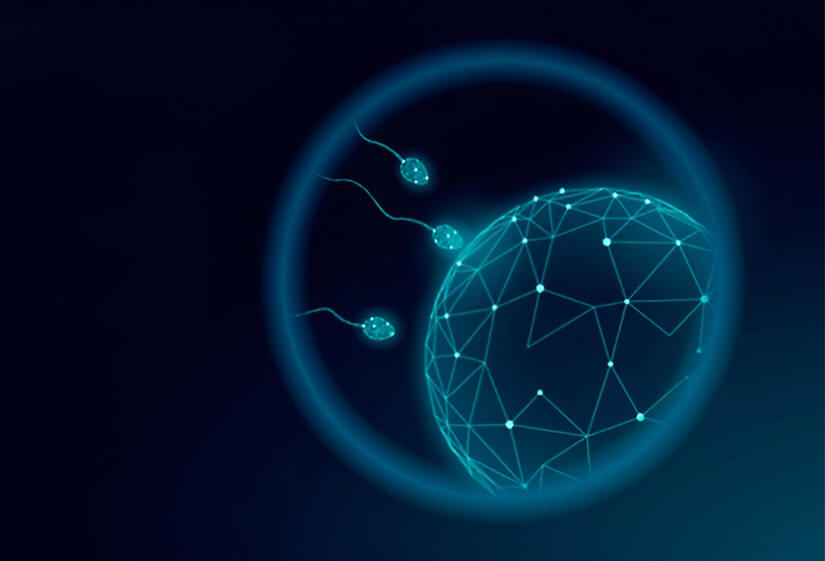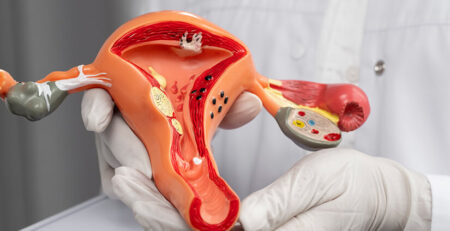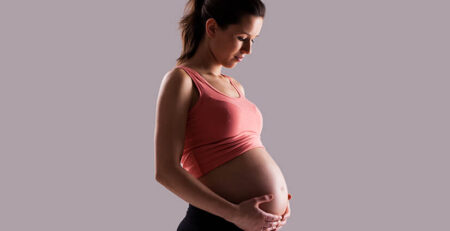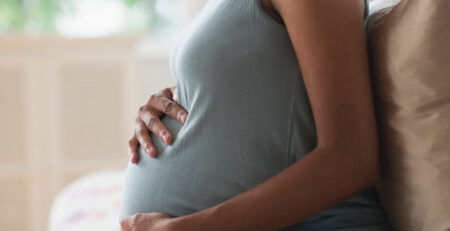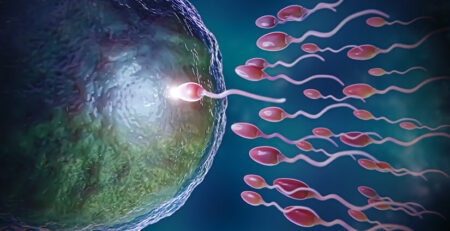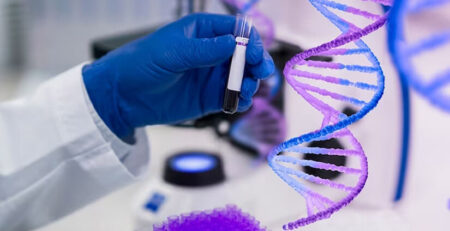IVF With Low Egg Reserves – Discover the Possibilities
Imagine walking into a fertility clinic with the weight of uncertainty on your shoulders. The clock ticks as you grapple with the reality of low egg reserves, and the daunting question arises: Is IVF even possible for me? While diminished ovarian reserve can be challenging, thanks to advancements in reproductive medicine, your dream of parenthood is still within reach.
Let’s understand how IVF with low egg reserves works and explore the possibilities awaiting you.
What Are Low Egg Reserves?
Low egg reserves refer to the reduced number of eggs a woman has available in her ovaries, often diagnosed through blood tests like AMH (Anti-Müllerian Hormone) or antral follicle count via ultrasound. This condition is often associated with age but can also affect younger women due to genetic factors, medical treatments, or lifestyle choices. If you’ve been told you have low egg reserves, it’s normal to feel apprehensive. However, rest assured that even with this condition, IVF remains a viable option.
Can IVF Work With Low Egg Reserves?
Yes, IVF can work with low egg reserves, but it often requires a tailored approach. Success rates in women with low egg reserves tend to be lower than in those with normal ovarian reserves, but it doesn’t mean all hope is lost. One of the main challenges with low egg reserves is retrieving a sufficient number of eggs for fertilization. However, the focus is not solely on quantity but quality as well. It’s important to remember that even one high-quality egg can result in a healthy pregnancy.
Tailored IVF Protocols for Low Egg Reserves
When dealing with low egg reserves, fertility specialists typically customize your IVF protocol to maximize egg retrieval and IVF success rates. Protocols such as the mild stimulation protocol or natural cycle IVF are designed specifically for women with low egg reserves, using lower doses of fertility drugs to stimulate the ovaries gently. These protocols aim to retrieve fewer eggs but often yield better-quality embryos.
For women with very low reserves, dual stimulation is another approach that has shown promise. Here, two cycles of ovarian stimulation are done back-to-back within the same menstrual cycle, thereby increasing the chances of retrieving a sufficient number of eggs.
The Role of Egg Quality in IVF Success Rates
While low egg reserves imply fewer eggs are available, it’s crucial to emphasize the role of egg quality in determining the overall success of IVF. Many women mistakenly believe that a higher number of eggs always equals better results. However, it’s the quality of the eggs that often matters more when it comes to successful implantation and a healthy pregnancy.
Egg quality typically declines with age, but there are ways to enhance it. A healthy lifestyle, combined with specific supplements like CoQ10, DHEA, and antioxidants, may help improve egg quality in women with low egg reserves. Fertility specialists often recommend these supplements to boost overall IVF success rates, particularly for older women or those with diminished ovarian reserves.
The Emotional Toll and How to Cope
IVF with low egg reserves can be emotionally taxing, as it may take several cycles to achieve success. Patience is crucial, and so is emotional support. It’s not uncommon to feel overwhelmed or discouraged if the initial cycles don’t yield the desired results. You may feel frustrated when faced with disappointing outcomes, but resilience plays a vital role in the journey to parenthood.
It’s essential to build a strong emotional support system. Whether it’s through a dedicated therapist specializing in fertility, support groups, or loved ones who understand your struggle, talking about your feelings can ease some of the burdens. Recognizing that you are not alone in this process is a crucial step in maintaining your emotional well-being.
Alternatives to Consider
In cases where IVF with low egg reserves does not yield successful results, alternative paths to parenthood may be explored. One such option is egg donation. Using an egg donor can significantly increase your chances of conceiving and carrying a pregnancy to term. For women who feel comfortable with this option, egg donation offers an opportunity to experience pregnancy and childbirth, even if their own eggs are not viable.
Another option to consider is embryo donation. In this case, previously created embryos are donated to couples or individuals struggling with infertility. While this approach may not be suitable for everyone, it has proven to be a successful path to parenthood for many.
The Importance of Fertility Preservation
For younger women diagnosed with low egg reserves, fertility preservation is an important consideration. Fertility preservation, typically through egg freezing (oocyte cryopreservation), allows women to pause their biological clock, preserving their eggs at a time when they are still healthy and viable. This option is particularly valuable for women who are not ready to pursue pregnancy right away but want to safeguard their ability to have biological children in the future.
Fertility preservation is also worth considering for women who are about to undergo medical treatments, such as chemotherapy or radiation, that could further diminish their egg reserves. Freezing eggs before these treatments begin offers an insurance policy for future family planning.
Patient Stories: Inspiration From Real-Life Successes
Nothing resonates more than real-life success stories. Take the story of a woman diagnosed with low egg reserves at the age of 38. She had undergone several failed cycles of IVF before she finally found success with a mild stimulation protocol and pre-implantation genetic testing (PGT). Though her journey was emotionally and physically exhausting, her perseverance, combined with an innovative approach from her fertility specialist, led to the birth of her healthy baby boy.
Another story of hope comes from a younger woman in her early thirties diagnosed with premature ovarian failure. After years of trying to conceive naturally, she turned to IVF with egg donation and achieved success on her first cycle. These stories remind us that while the path to parenthood can be long and challenging, the outcome can be profoundly rewarding.
The Future of IVF for Women With Low Egg Reserves
Fertility science is continually evolving, offering hope to women with low egg reserves. Techniques like ovarian rejuvenation through platelet-rich plasma (PRP) injections are showing early promise. In this procedure, PRP is injected into the ovaries to stimulate follicle growth. While still experimental, it could potentially improve IVF success rates in women with diminished ovarian reserves.
Another emerging technique is in-vitro activation, where dormant follicles in the ovaries are activated to grow and mature. Although these treatments are still being studied, they could represent the future of fertility care, giving more women the chance to conceive.
Choosing the Right IVF Specialist
One of the most critical factors in navigating IVF with low egg reserves is selecting the right fertility doctor. The Best IVF Doctors in Delhi are well-versed in handling complex cases, offering personalized care and the latest advancements in reproductive technology. Look for a specialist who has experience working with low ovarian reserve cases and understands the nuances of such protocols. A doctor who stays abreast of new research and treatments will ensure you have access to the best possible care.
Conclusion: There’s Still Hope
Facing low egg reserves can feel overwhelming, but IVF offers a beacon of hope for many women. With the right approach, tailored treatment plans, and advanced techniques, your dream of parenthood can still become a reality. Remember, the goal is not just to retrieve eggs but to cultivate high-quality embryos that lead to successful pregnancies.
If you’ve been struggling with low egg reserves and are wondering if IVF is the right path for you, don’t hesitate to seek expert advice. Dr. Rhythm Gupta, a renowned IVF specialist in New Delhi, has helped countless women with low ovarian reserves achieve their dreams of parenthood. With personalized care and cutting-edge techniques, Dr. Gupta will guide you every step of the way. Book your consultation today and discover the possibilities IVF can offer.

